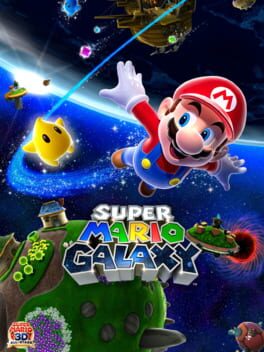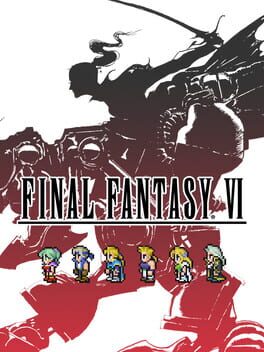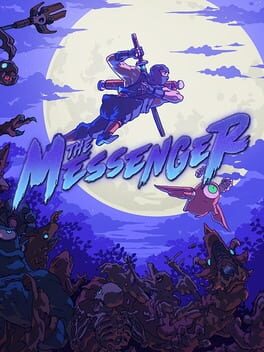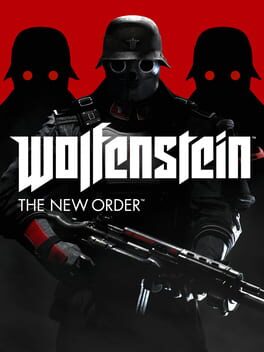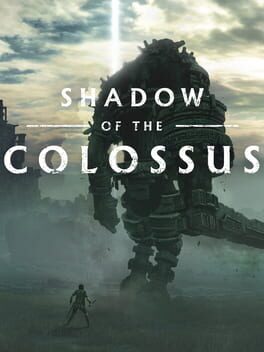Jerrett
Bio
Hi please stop stalking me thanks
I'm a figment of your imagination
2 or below - bad
2.5-3.5 - good
4-4.5 - amazing
5 - pinnacle of its genre
Hi please stop stalking me thanks
I'm a figment of your imagination
2 or below - bad
2.5-3.5 - good
4-4.5 - amazing
5 - pinnacle of its genre
Badges

Roadtrip
Voted for at least 3 features on the roadmap

Liked
Gained 10+ total review likes

N00b
Played 100+ games

Best Friends
Become mutual friends with at least 3 others

Noticed
Gained 3+ followers
Favorite Games
196
Total Games Played
005
Played in 2024
000
Games Backloggd
Recently Played See More
Recently Reviewed See More
The Messenger is of a select few metroidvanias that I have cared enough to complete. So many games in this genre don't do anything for me---which is weird because I enjoy all of the elements of metroidvanias. The interconnected world, power-ups, progression... each part on their own is great, but I feel like more often than not things get a little hazy when they are put together. Maybe it's just a skill issue on my part, but I couldn't care less.
The Messenger combats my problems with metroidvanias by it not being a metroidvania until halfway through the game. You start out with 8-bit visuals, combat, and game conventions to ease your way into the game. When The Messenger is like this, it plays like an old Ninja Gaiden game. Learning the game's mechanics this way lets each of them breath, and it never got overwhelming. Eventually, the game turns 16-bit and starts showing off its metroidvania side. Everything mentioned earlier gets an upgrade that you can feel while playing. The music changes, the pixel art starts looking more like a SNES game rather than one from the NES, and the levels start becoming more ambitious. Soon after that, though, the game pulls out its Trump card: switching between 8- and 16-bit.
When switching between these two in each level, your knowledge of each gameplay style is tested. You'll go from relatively simple areas while in the 8-bit world and then, upon switching to the 16-bit version of the level, everything gets taken up a notch. You do this multiple times per level, and each time is more inventive than the last.
The Messenger's main gameplay systems is its combat and platforming. The platforming is great, and it can get pretty challenging at times too. The combat is simple, but it can get pretty involved. The Messenger is at its best during boss fights when it tests you on both your platforming and combat abilities.
The writing is great too. It made me laugh multiple times during my playthroughs, and the characters are all great. It never falls into the side of annoyance with any of the side characters--they all have a unique charm to them that I feel like is only really ever seen in Nintendo games.
The Messenger takes the best parts of being a side-scroller NES game and being a contemporary metroidvanias to make an experience that is unforgettable.
The Messenger combats my problems with metroidvanias by it not being a metroidvania until halfway through the game. You start out with 8-bit visuals, combat, and game conventions to ease your way into the game. When The Messenger is like this, it plays like an old Ninja Gaiden game. Learning the game's mechanics this way lets each of them breath, and it never got overwhelming. Eventually, the game turns 16-bit and starts showing off its metroidvania side. Everything mentioned earlier gets an upgrade that you can feel while playing. The music changes, the pixel art starts looking more like a SNES game rather than one from the NES, and the levels start becoming more ambitious. Soon after that, though, the game pulls out its Trump card: switching between 8- and 16-bit.
When switching between these two in each level, your knowledge of each gameplay style is tested. You'll go from relatively simple areas while in the 8-bit world and then, upon switching to the 16-bit version of the level, everything gets taken up a notch. You do this multiple times per level, and each time is more inventive than the last.
The Messenger's main gameplay systems is its combat and platforming. The platforming is great, and it can get pretty challenging at times too. The combat is simple, but it can get pretty involved. The Messenger is at its best during boss fights when it tests you on both your platforming and combat abilities.
The writing is great too. It made me laugh multiple times during my playthroughs, and the characters are all great. It never falls into the side of annoyance with any of the side characters--they all have a unique charm to them that I feel like is only really ever seen in Nintendo games.
The Messenger takes the best parts of being a side-scroller NES game and being a contemporary metroidvanias to make an experience that is unforgettable.
When it comes to games I play nowadays, they have to hook me relatively quickly for me to play them all the way through. This part about my playing habits is especially true for soulslikes. I am of the opinion that VERY few games can approach FromSoftware's souls games in terms of quality. Prior to finishing Lies of P, the only game that ever came close was Nioh 2. Lies of P now joins Nioh 2 in being the only two soulslikes that are up there with FromSoftware.
Lies of P feels more like a FromSoftware game than any other soulslike I've ever played. The combat, world design, music, and (something I rarely see mentioned in games like this) cutscene direction feel, sound, and look like FromSoftware made them. If your basis on how good a soulslike is completely based on how alike it is to games that FromSoftware make, then this will be your favorite without a doubt. I still think Nioh 2 is the best soulslike because of how it evolves the formula (read my Nioh 2 review for more!), but this is an excellent beginning for a studio that only had one other game under their belt prior to this.
The most important parts of soulslikes are level design and combat. Despite being important to how these games feel and play, many soulslikes are not able to nail either of them; however, Lies of P succeeds in both of these (albeit to varying degrees). Lies of P understands soulslike combat better than most soulslikes that have emerged since the genres inception. The team at Round 8 gets the intricacies of what makes these games feel so good to play. The cool boss fights and flashy moves are not what people play these games for (or at least it's not what I play them for). This isn't me undermining the game's bosses--most of them are incredible, but some are laughably bad (Black Rabbit Brotherhood and Victor). Sure, they both play a part, but the build customization and encounters are what make these games shine. Each of the main parts (combat, presentation, bosses, story) need to work together to create an experience. If even one part is bad, it sours the experience.
Being able to take apart most weapons is amazing. Looking at each blade's move set and damage with different handles was something I constantly looked forward to each time I found a new weapon. It really leans into the idea that all weapons and playstyles are valid--which is something we haven't seen in this genre since Bloodborne. I also enjoy that it marries the aggression of Bloodborne with the parrying mechanics of Sekiro. The only downside to this is that I feel that the parry window is just barely too tight. The enemy encounters in each of its levels are mostly well thought out, but some encounters feel unfair to an extent. I think level design is Lies of P's main flaw. These levels are NOT bad (barring Collapsed Krat), but they don't have any of the inventiveness that FromSoftware titles have. I feel like this is completely due to the game's linearity. It doesn't really feel like you're making your way through a world, but it instead feels like you are going through the motions.
The music, art direction, and cutscenes are also a standout. Each of these stand toe-to-toe with FromSoftware's best. I think the records you collect have some of the most beautiful arrangements this genre has to offer. Bloodborne is an easy comparison to make here, but I think Demon's Souls also has a say here with the Shrine of Storm and Tower of Latria feel like heavy inspirations for Lies of P's art direction. And now there are the cutscenes. The cutscenes that introduce each of the game's main bosses as well as major story beats are incredible too. I can't really describe why I feel so drawn to the cutscenes here--I haven't actively thought about any other soulslike's cutscenes before--but the ones here just jump out at me as well made.
Saying that Lies of P is just an imitation of FromSoftware's work with a Pinocchio spin really discredits a lot of what Lies of P does right, but I can understand where it is coming from. Lies of P wears its inspirations on its ever-growing nose, but it can stand on its own as something truly remarkable.
Lies of P feels more like a FromSoftware game than any other soulslike I've ever played. The combat, world design, music, and (something I rarely see mentioned in games like this) cutscene direction feel, sound, and look like FromSoftware made them. If your basis on how good a soulslike is completely based on how alike it is to games that FromSoftware make, then this will be your favorite without a doubt. I still think Nioh 2 is the best soulslike because of how it evolves the formula (read my Nioh 2 review for more!), but this is an excellent beginning for a studio that only had one other game under their belt prior to this.
The most important parts of soulslikes are level design and combat. Despite being important to how these games feel and play, many soulslikes are not able to nail either of them; however, Lies of P succeeds in both of these (albeit to varying degrees). Lies of P understands soulslike combat better than most soulslikes that have emerged since the genres inception. The team at Round 8 gets the intricacies of what makes these games feel so good to play. The cool boss fights and flashy moves are not what people play these games for (or at least it's not what I play them for). This isn't me undermining the game's bosses--most of them are incredible, but some are laughably bad (Black Rabbit Brotherhood and Victor). Sure, they both play a part, but the build customization and encounters are what make these games shine. Each of the main parts (combat, presentation, bosses, story) need to work together to create an experience. If even one part is bad, it sours the experience.
Being able to take apart most weapons is amazing. Looking at each blade's move set and damage with different handles was something I constantly looked forward to each time I found a new weapon. It really leans into the idea that all weapons and playstyles are valid--which is something we haven't seen in this genre since Bloodborne. I also enjoy that it marries the aggression of Bloodborne with the parrying mechanics of Sekiro. The only downside to this is that I feel that the parry window is just barely too tight. The enemy encounters in each of its levels are mostly well thought out, but some encounters feel unfair to an extent. I think level design is Lies of P's main flaw. These levels are NOT bad (barring Collapsed Krat), but they don't have any of the inventiveness that FromSoftware titles have. I feel like this is completely due to the game's linearity. It doesn't really feel like you're making your way through a world, but it instead feels like you are going through the motions.
The music, art direction, and cutscenes are also a standout. Each of these stand toe-to-toe with FromSoftware's best. I think the records you collect have some of the most beautiful arrangements this genre has to offer. Bloodborne is an easy comparison to make here, but I think Demon's Souls also has a say here with the Shrine of Storm and Tower of Latria feel like heavy inspirations for Lies of P's art direction. And now there are the cutscenes. The cutscenes that introduce each of the game's main bosses as well as major story beats are incredible too. I can't really describe why I feel so drawn to the cutscenes here--I haven't actively thought about any other soulslike's cutscenes before--but the ones here just jump out at me as well made.
Saying that Lies of P is just an imitation of FromSoftware's work with a Pinocchio spin really discredits a lot of what Lies of P does right, but I can understand where it is coming from. Lies of P wears its inspirations on its ever-growing nose, but it can stand on its own as something truly remarkable.
I used to hate Shadow of the Colossus. The movement is clunky, the horse is terrible, the climbing feels largely unresponsive, the camera... Any time I would bring up my criticisms of Shadow of the Colossus, a friend would constantly say, "That's the point." I never understood it. Looking at Ueda's other works, I would always say that I thought that The Last Guardian is by FAR his best game and is a modern masterpiece. I think I get it now.
I first played Shadow of the Colossus in 2021. I bought it around my birthday, and I was so excited to get lost in its world. I had only ever heard good things about it. At first, I saw what all the hype was about. Around halfway through the game, though, its problems started showing up more and more. By the end, while fighting the final Colossus, I started to hate it.
Now that I'm older and my tastes have changed, I figured that I should give it another shot. During that halfway point where I started to get annoyed originally, I instead felt like I was getting it. All of its "problems" work together to make an experience like no other.
The remake elevates all of its qualities by giving it an incredible presentation. The remade OST is atmospheric, and the graphical overhaul that Bluepoint and Japan Studio (RIP) feel exactly like what Ueda would have made if he was not constrained by the technical limitations of the PS2. The camera being fixed in some places or moving on its own gives the game a filmic quality that I feel no other game has nowadays.
The gameplay is simple albeit fascinating. Try to put yourself into Wander's shoes. I know that I wouldn't be able to fight any of these Colossi, and Ueda is able to show this with gameplay. You are powerless compared to these giant freaks of nature. The horse, I feel, is still one of the weakest parts of the game. Wander and Agro have obviously been with each other for a while, so I am unsure why we are not able to control him too well.
With all that being said, I still think that this game isn't perfect. Like I said, the horse isn't great, and some Colossi aren't that fun to fight. The camera, although cinematic, can sometimes be terrible. In some fights, it can be really hard to see where you are, where you're going, or what the Colossus is doing.
I still think that The Last Guardian is better, but Shadow of the Colossus is a damn good experience.
I first played Shadow of the Colossus in 2021. I bought it around my birthday, and I was so excited to get lost in its world. I had only ever heard good things about it. At first, I saw what all the hype was about. Around halfway through the game, though, its problems started showing up more and more. By the end, while fighting the final Colossus, I started to hate it.
Now that I'm older and my tastes have changed, I figured that I should give it another shot. During that halfway point where I started to get annoyed originally, I instead felt like I was getting it. All of its "problems" work together to make an experience like no other.
The remake elevates all of its qualities by giving it an incredible presentation. The remade OST is atmospheric, and the graphical overhaul that Bluepoint and Japan Studio (RIP) feel exactly like what Ueda would have made if he was not constrained by the technical limitations of the PS2. The camera being fixed in some places or moving on its own gives the game a filmic quality that I feel no other game has nowadays.
The gameplay is simple albeit fascinating. Try to put yourself into Wander's shoes. I know that I wouldn't be able to fight any of these Colossi, and Ueda is able to show this with gameplay. You are powerless compared to these giant freaks of nature. The horse, I feel, is still one of the weakest parts of the game. Wander and Agro have obviously been with each other for a while, so I am unsure why we are not able to control him too well.
With all that being said, I still think that this game isn't perfect. Like I said, the horse isn't great, and some Colossi aren't that fun to fight. The camera, although cinematic, can sometimes be terrible. In some fights, it can be really hard to see where you are, where you're going, or what the Colossus is doing.
I still think that The Last Guardian is better, but Shadow of the Colossus is a damn good experience.

